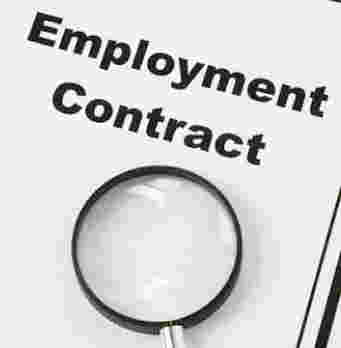When Should I Hire a Business Lawyer?
Most of us aren’t delighted with the prospect of meeting with a lawyer. We tend to link that with legal issues, which no one likes to deal with. However, there are situations when a business lawyer is exactly what you need. A qualified business lawyer can help you set up your firm, manage your intellectual property rights, draft excellent contracts, and establish acceptable employment practices, among other things. They will also keep you up to date on changes in local and federal regulations that may affect your firm. In other words, consulting with your company lawyer early on can help you prevent legal problems later on. And if legal problems emerge, your lawyer is there to assist you.
Of course, hiring a lawyer is expensive, and small and new enterprises are sometimes on a limited budget. That is, it is not necessary to see a lawyer for every situation that may have legal ramifications. However, it can be difficult to determine when you can handle a legal issue on your own and when you should consult with a company lawyer. So here are a few examples of when hiring a lawyer is worthwhile.
1. Changing Your Business Structure or Ownership
Choosing a structure is one of the first obstacles you will encounter when starting a new firm. This decision will have an influence on your future company’s tax liability, stock options, and other issues. However, when you initially start out, you should be able to make the decision on your own.
If you do decide to modify that structure, consult with your company counsel. They’ll walk you through the advantages and drawbacks of the modification and lead you through the implementation process. This is especially critical when recruiting new investors or partners. Anyone who owns a piece of the company has legal rights, and you’ll need to prepare paperwork (such as a shareholder’s agreement) to specify how the commercial relationships will function, define each party’s role, and design a mechanism for dispute resolution, among other things.
Law Office of James P. Dillon, Jr. helps businesses correctly from the start, and protect their interests as they embark and flourish on their new business venture. They help companies and startups, refine business, financing and technology strategies to help enable rapid growth.
2. Creating Contracts
Contracts are a tangle of legalese and complex verbiage for most non-lawyers. It’s a good idea to get down with your company attorney early on to draft standard contracts that you’ll use when working with suppliers, clients, and other relevant parties. They will be able to identify difficulties that you may not have considered, as well as make the contract legally explicit and enforceable.
A typical contract will suffice for the majority of day-to-day, uncomplicated transactions. If you’re working on a larger agreement or a long-term arrangement (such as a lease or a loan), it’s time to revisit your attorney to iron out the intricacies of that specific contract.
3. Issues With Employees
Employment law is a highly specialized and complicated area of law. The standards for overtime pay, family leave, workers’ compensation, and numerous employee rights change on a regular basis, and it can be difficult to keep up with all of the rules and regulations. Depending on the size and structure of your firm, your legal duties to your employees may also alter. Take an hour with your company attorney as you begin to write out your employment practices to ensure you understand your legal rights and duties, as well as those of your employees.
This is especially crucial if you’re considering an unusual employment scenario (such as compensating staff via stock options). Again, there might be tax ramifications, and you and your workers will have distinct legal responsibilities.
4. If You Get Sued
Unfortunately, the nature of doing business may result in your company being sued. In any case, it’s pretty normal for a lawsuit to be submitted straight to your attorney. They will assist you in comprehending the nature of the issue and your alternatives for resolving it. Contract conflicts, for example, are frequently resolved through mediation or arbitration rather than through costly litigation.
When Should I Hire a Business Lawyer
Don’t wait until you’re facing a massive lawsuit to hire a business lawyer. They are there for a reason other than to represent you in court. They can assist you in starting your business on the right foot! Consider locating and establishing a connection with a business attorney early in the life of your venture. Keeping them interested in the intricacies of your business allows them to produce better job for you.



